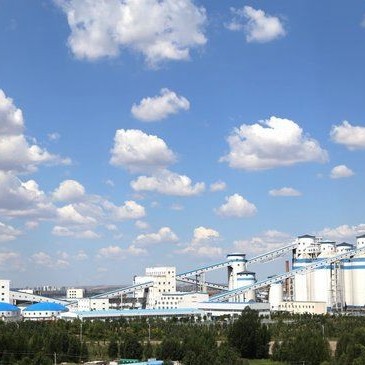
-
 Afrikaans
Afrikaans -
 Albanian
Albanian -
 Amharic
Amharic -
 Arabic
Arabic -
 Armenian
Armenian -
 Azerbaijani
Azerbaijani -
 Basque
Basque -
 Belarusian
Belarusian -
 Bengali
Bengali -
 Bosnian
Bosnian -
 Bulgarian
Bulgarian -
 Catalan
Catalan -
 Cebuano
Cebuano -
 China
China -
 China (Taiwan)
China (Taiwan) -
 Corsican
Corsican -
 Croatian
Croatian -
 Czech
Czech -
 Danish
Danish -
 Dutch
Dutch -
 English
English -
 Esperanto
Esperanto -
 Estonian
Estonian -
 Finnish
Finnish -
 French
French -
 Frisian
Frisian -
 Galician
Galician -
 Georgian
Georgian -
 German
German -
 Greek
Greek -
 Gujarati
Gujarati -
 Haitian Creole
Haitian Creole -
 hausa
hausa -
 hawaiian
hawaiian -
 Hebrew
Hebrew -
 Hindi
Hindi -
 Miao
Miao -
 Hungarian
Hungarian -
 Icelandic
Icelandic -
 igbo
igbo -
 Indonesian
Indonesian -
 irish
irish -
 Italian
Italian -
 Japanese
Japanese -
 Javanese
Javanese -
 Kannada
Kannada -
 kazakh
kazakh -
 Khmer
Khmer -
 Rwandese
Rwandese -
 Korean
Korean -
 Kurdish
Kurdish -
 Kyrgyz
Kyrgyz -
 Lao
Lao -
 Latin
Latin -
 Latvian
Latvian -
 Lithuanian
Lithuanian -
 Luxembourgish
Luxembourgish -
 Macedonian
Macedonian -
 Malgashi
Malgashi -
 Malay
Malay -
 Malayalam
Malayalam -
 Maltese
Maltese -
 Maori
Maori -
 Marathi
Marathi -
 Mongolian
Mongolian -
 Myanmar
Myanmar -
 Nepali
Nepali -
 Norwegian
Norwegian -
 Norwegian
Norwegian -
 Occitan
Occitan -
 Pashto
Pashto -
 Persian
Persian -
 Polish
Polish -
 Portuguese
Portuguese -
 Punjabi
Punjabi -
 Romanian
Romanian -
 Russian
Russian -
 Samoan
Samoan -
 Scottish Gaelic
Scottish Gaelic -
 Serbian
Serbian -
 Sesotho
Sesotho -
 Shona
Shona -
 Sindhi
Sindhi -
 Sinhala
Sinhala -
 Slovak
Slovak -
 Slovenian
Slovenian -
 Somali
Somali -
 Spanish
Spanish -
 Sundanese
Sundanese -
 Swahili
Swahili -
 Swedish
Swedish -
 Tagalog
Tagalog -
 Tajik
Tajik -
 Tamil
Tamil -
 Tatar
Tatar -
 Telugu
Telugu -
 Thai
Thai -
 Turkish
Turkish -
 Turkmen
Turkmen -
 Ukrainian
Ukrainian -
 Urdu
Urdu -
 Uighur
Uighur -
 Uzbek
Uzbek -
 Vietnamese
Vietnamese -
 Welsh
Welsh -
 Bantu
Bantu -
 Yiddish
Yiddish -
 Yoruba
Yoruba -
 Zulu
Zulu
fiberglass reinforced plastic tank
The Benefits and Applications of Fiberglass Reinforced Plastic Tanks
Fiberglass reinforced plastic (FRP) tanks are gaining widespread recognition in various industries due to their superior properties and versatility. Combining the lightweight nature of plastics with the strength and durability of fiberglass, these tanks offer a range of advantages that make them ideal for storing liquids and gases. This article explores the benefits, applications, and installation considerations for fiberglass reinforced plastic tanks.
Understanding Fiberglass Reinforced Plastic
Fiberglass reinforced plastic is a composite material made from a polymer matrix reinforced with glass fibers. The result is a material that boasts high tensile strength, corrosion resistance, and reduced weight compared to traditional materials like steel or concrete. These characteristics make FRP tanks highly suitable for industries that require reliable and long-lasting storage solutions.
Key Benefits of FRP Tanks
1. Corrosion Resistance One of the most significant advantages of fiberglass tanks is their resistance to a variety of chemicals. Unlike metal tanks that may corrode or degrade when exposed to certain liquids, FRP tanks can withstand harsh chemicals, including acids, alkalis, and solvents. This property extends the lifespan of the tanks and minimizes the risks of leaks and contamination.
2. Lightweight and Easy to Transport FRP tanks are considerably lighter than their metal or concrete counterparts. This feature simplifies transportation and installation, allowing for greater flexibility in site selection. The reduced weight also lowers the overall transportation costs and makes it easier to handle during installation.
3. Customizable Designs Manufacturers can easily mold fiberglass into various shapes and sizes. This flexibility allows for the creation of custom solutions tailored to specific storage needs. Whether it’s a large tank for industrial use or a smaller one for agricultural purposes, FRP offers customization options that can meet unique requirements.
4. Low Maintenance The non-porous surface of fiberglass tanks makes them easy to clean and maintain. Unlike traditional materials that may harbor bacteria or require expensive coatings, FRP tanks usually require only periodic inspection and minor upkeep, further reducing operation costs.
5. Thermal Insulation Fiberglass has excellent thermal insulation properties, making FRP tanks capable of maintaining stable temperatures for the stored contents. This attribute is particularly beneficial for applications involving temperature-sensitive materials, reducing the need for additional insulation methods.
fiberglass reinforced plastic tank

Common Applications of FRP Tanks
Fiberglass reinforced plastic tanks are utilized across various sectors, including
- Chemical Processing Due to their resistance to corrosion from harsh chemicals, FRP tanks are commonly used in chemical processing plants to store acids, bases, and other reactive substances.
- Water and Wastewater Treatment FRP tanks are used in water treatment facilities for storing and processing water. Their ability to resist corrosion from chemicals used in purification processes further enhances their suitability in this field.
- Agriculture In agriculture, FRP tanks serve as storage solutions for fertilizers and pesticides, providing a safe and durable option for holding potentially harmful substances.
- Food and Beverage Many food processing facilities utilize fiberglass tanks for storing various food ingredients and beverages, as they do not leach harmful substances into the contents.
Installation Considerations
While fiberglass reinforced plastic tanks offer many advantages, proper installation is crucial to ensuring their longevity and efficiency. It is essential to follow manufacturer guidelines during the installation process and consider factors such as ground stability, tank placement, and local regulations. Regular inspections are also recommended to monitor for signs of wear or damage, ensuring the tanks function optimally throughout their lifespan.
Conclusion
Fiberglass reinforced plastic tanks represent a robust and versatile solution for a multitude of storage needs across various industries. Their exceptional durability, corrosion resistance, and customizable options make them an ideal choice for applications ranging from chemical processing to agriculture. As industries continue to seek more efficient and cost-effective solutions, FRP tanks are poised to become a standard in safe and reliable storage.









